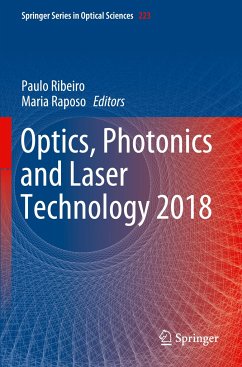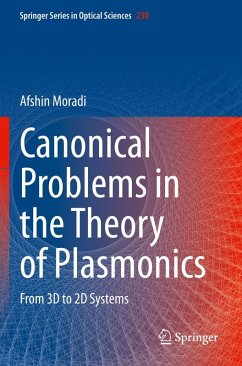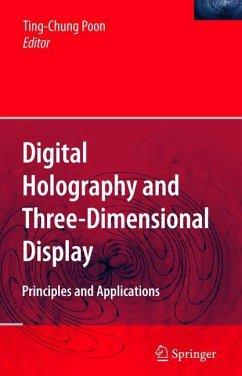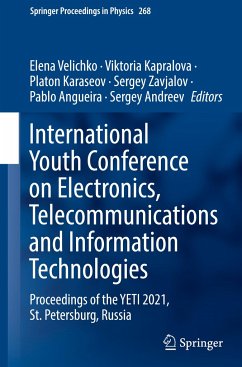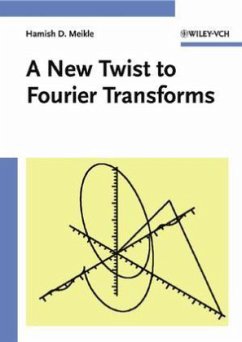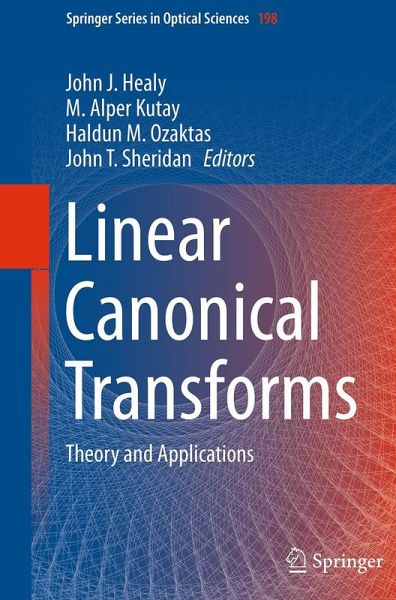
Linear Canonical Transforms
Theory and Applications
Herausgegeben: Healy, John J.; Alper Kutay, M.; Ozaktas, Haldun M.; Sheridan, John T.
Versandkostenfrei!
Versandfertig in 6-10 Tagen
75,99 €
inkl. MwSt.

PAYBACK Punkte
38 °P sammeln!
This book provides a clear and accessible introduction to the essential mathematical foundations of linear canonical transforms from a signals and systems perspective. Substantial attention is devoted to how these transforms relate to optical systems and wave propagation. There is extensive coverage of sampling theory and fast algorithms for numerically approximating the family of transforms. Chapters on topics ranging from digital holography to speckle metrology provide a window on the wide range of applications.This volume will serve as a reference for researchers in the fields of image and ...
This book provides a clear and accessible introduction to the essential mathematical foundations of linear canonical transforms from a signals and systems perspective. Substantial attention is devoted to how these transforms relate to optical systems and wave propagation. There is extensive coverage of sampling theory and fast algorithms for numerically approximating the family of transforms. Chapters on topics ranging from digital holography to speckle metrology provide a window on the wide range of applications.
This volume will serve as a reference for researchers in the fields of image and signal processing, wave propagation, optical information processing and holography, optical system design and modeling, and quantum optics. It will be of use to graduate students in physics and engineering, as well as for scientists in other areas seeking to learn more about this important yet relatively unfamiliar class of integral transformations.
This volume will serve as a reference for researchers in the fields of image and signal processing, wave propagation, optical information processing and holography, optical system design and modeling, and quantum optics. It will be of use to graduate students in physics and engineering, as well as for scientists in other areas seeking to learn more about this important yet relatively unfamiliar class of integral transformations.



